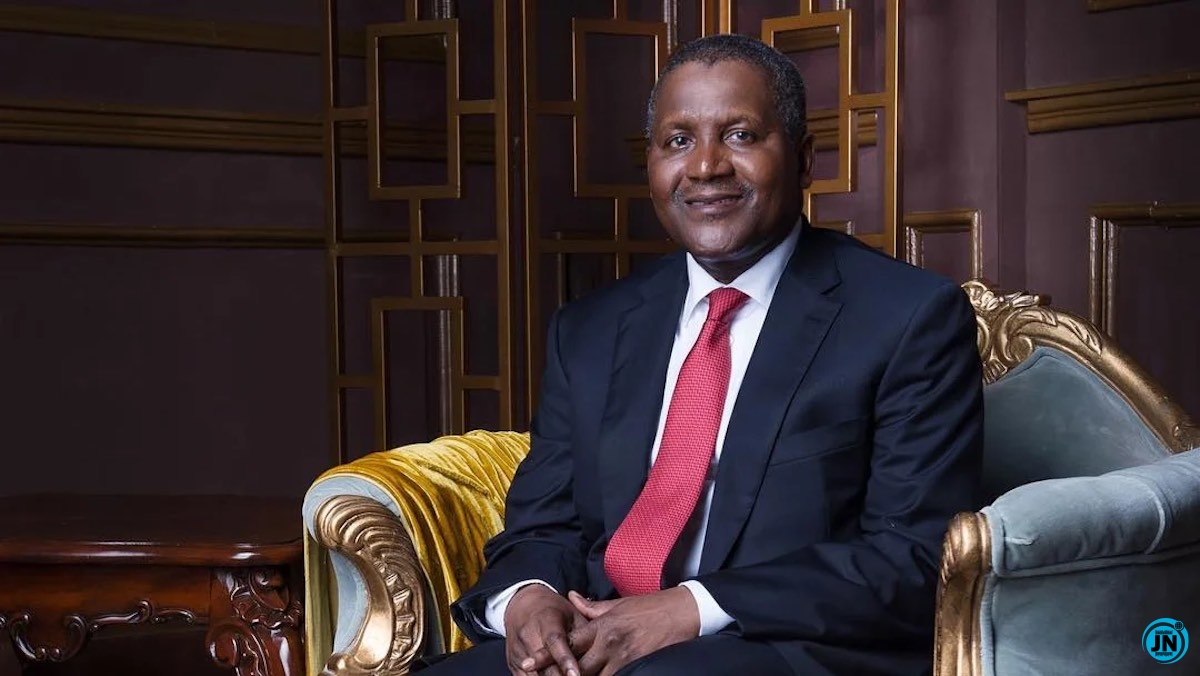
Aliko Dangote, Africa’s richest man and founder of the Lagos-based Dangote Group, saw his fortune shrink by $397 million in a single day after shares in Dangote Cement dipped sharply on the Nigerian Stock Exchange. The drop in the price of Dangote Cement shares has caused a noticeable impact on his overall wealth, highlighting the volatility that can affect even the most established business tycoons in volatile markets. The significant reduction in his net worth, although temporary, has attracted attention due to Dangote's status as a major player in both the African and global business arenas.
According to Forbes’ real-time billionaire tracker, Dangote’s net worth now stands at $23.2 billion, ranking him 84th among the world’s wealthiest individuals. This drop follows a period of relative stability for the industrial magnate, and although it’s a notable decline, he remains among the wealthiest and most influential businessmen worldwide. Dangote’s wealth is largely tied to his diverse range of investments, especially in Nigeria, where he holds major stakes in industries such as cement, oil, sugar, and more.
The drop followed Wednesday’s close of Dangote Cement shares at N480.00. Dangote Cement, the largest cement producer in Nigeria, is one of the most actively traded stocks on the Nigerian Stock Exchange. Despite the sharp drop in its stock price, the company’s performance remains significant in the Nigerian market, with substantial volumes of transactions taking place on a regular basis. Between January and April 2025 alone, more than 25 million shares of Dangote Cement were exchanged in over 15,000 deals, amounting to a transaction value of N10.8 billion. This level of trading activity demonstrates the substantial interest in the company, even amidst stock price fluctuations. Dangote holds an 86% stake in the cement giant, making it a key part of his business empire and contributing significantly to his wealth. The cement business is one of the central pillars of Dangote Group, and any changes in its performance are closely watched by both investors and analysts alike.
Beyond cement, Dangote’s industrial footprint stretches across multiple sectors, further solidifying his influence across the African continent. His crown jewel, the Dangote Oil Refinery — Africa’s largest and most ambitious petroleum project — commenced operations in early 2024. The refinery, which is valued at $20 billion, is expected to play a pivotal role in reshaping Nigeria’s energy landscape and reducing the country’s reliance on imported fuels. Dangote owns a 92.3% stake in the refinery, positioning him to benefit from what is expected to be a transformative project for both his business empire and Nigeria's economy. With this project, Dangote is also contributing to the diversification of Nigeria’s oil and energy sectors, which have been historically reliant on imports for refined petroleum products. The Dangote Refinery is expected to help meet local demand and potentially drive economic growth in the region by adding value to Nigeria’s oil reserves.
In addition to his petroleum ventures, Dangote owns a major fertilizer plant, which is one of the largest in the region, with a production capacity of 2.8 million metric tons of urea annually. The plant’s strategic economic importance is reflected in independent assessments, which use net present value methodology to estimate the value of the plant. Assuming a 50% operational capacity, the plant remains an essential asset for Dangote, serving not only Nigeria but also the wider African continent’s agricultural needs. Fertilizer production is a critical component of ensuring food security in Africa, and Dangote’s involvement in this sector places him at the forefront of the region's agricultural transformation.
Dangote’s holdings also extend to other publicly traded companies, including Dangote Sugar, Nascon Allied Industries, and United Bank for Africa. These assets, along with his significant cement stake, contribute to his diverse portfolio of investments. His business interests are carefully managed through Dangote Industries, which is the flagship investment arm of the Dangote Group. The group’s expansive portfolio allows Dangote to influence key sectors in Nigeria and beyond. Additionally, his privately held businesses, which include ventures in food processing, agriculture, and packaging, are valued using investment costs, as detailed in the Group’s 2023 audited financial reports. This combination of public and private investments demonstrates Dangote’s wide-ranging influence and his continued efforts to diversify his business interests across various sectors of the economy.
Despite the single-day dip in net worth, Dangote remains a towering figure in African industry. His vast portfolio, built over decades, is designed to foster long-term industrial self-reliance and economic transformation on the continent. His commitment to building infrastructure and industries that can reshape Africa’s economic future continues to position him as one of the most influential businessmen not only in Africa but also on the global stage. While market fluctuations may cause short-term changes in wealth, Dangote’s broader vision for economic development remains intact, and he continues to be a leading figure in Africa’s industrial revolution.

